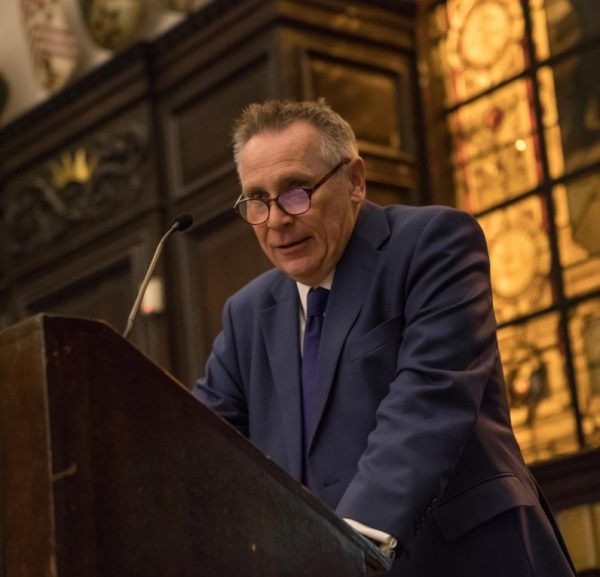UK Society of Editors urges the government to turn words into action to support press freedom

The UK Society of Editors (SoE) has welcomed the latest assurances from the Government it supports press freedom in the UK and globally, but calls on it to go further to turn words into action.
The SoE was commenting after a debate in the House of Lords yesterday (June 8, 2020) following a question from Lord Black of Brentwood into what action the government is taking to promote press freedom and the safety of journalists globally. Lord Black (pictured), deputy chairman of the Telegraph Media Group, described the Media Freedom Coalition, which the UK Government helped establish, as “missing in action.”

“Across the world—from Mexico to Hungary to Beijing—attacks on journalists and publishers are reaching unprecedented levels. In many cases these are inspired by the disgraceful actions of the White House, which have led to attacks on journalists in the US.
“Some sixty-four other countries, according to Reporters Without Borders, are using Covid-19 to chill free speech and bully journalists, often using criminal sanctions.”
He added that it was now urgent that there is co-ordinated international action to ensure that journalists have proper legal protection, including an end to impunity, and called on the government to produce a national action plan.
Lord Ahmad of Wimbledon, Minister of State, Foreign and Commonwealth Office and Department for International Development confirmed the government was continuing to monitor individual cases of concern around the world and working with international partners on how best to support media freedom despite the challenges and restrictions of Covid-19.
Lord Ahmad added he did not agree with the premise that the Media Freedom Coalition was missing in action.
“The Foreign Secretary had discussions on world media freedom on 3 May with German, French and Dutch counterparts. We continue to work very closely with our key partner, Canada, on that initiative. “
Ian Murray, executive director of the Society of Editors said it was important the UK was seen to be acting on media freedom and not just talking about it.
“Those actions begin at home with ensuring threats to the media here in the UK are removed. We must be seen to set the example we expect other nations to emulate,” said Murray, referring to recent concerns expressed over the barring of some journalists attending government briefings.
During the debate in the House of Lords, Baroness Goudie (Lab) raised concerns over the actions of the US government.
“We are used to autocracies suppressing freedom of expression, and we expect democracies to support freedom of expression. It is a matter of great sadness when a country with a great democratic tradition and a great history of freedom of the press such as the United States goes the way of autocracies and physically attacks journalists who are doing their job.”
Lord Ahmad said the issue had been raised in bilateral conversations with the US.
“If you are a democracy, of course, the responsibility becomes ever greater. The freedom of the press and protection of the media is a fundamental pillar of good governance and democracy,” he added.
Baroness Bonham-Carter of Yarnbury expressed concern over remarks by President Trump describing journalists as “enemies of the people”.
“Does the Minister agree that those in positions of power should support journalists, not undermine them?”
Lord Ahmad of Wimbledon replied: “I cannot speak for the US Administration or the US President; however, I can speak for Her Majesty’s Government. Our support for the global media coalition and the work we are doing in this respect, as a key priority within a human rights context, underlines our commitment. On the noble Baroness’s latter remarks, of course I agree with her. As a democracy, we are proud of our support for journalists and media freedom, and that will continue to be the case under the current Government.”
The debate also raised issues of reports of the Colombian army compiling secret files on journalists.
